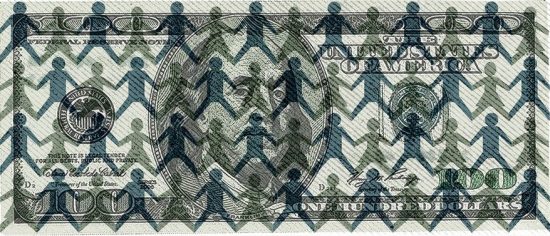Some government officials, politicians and commentators keep saying words to the effect, “we need to spend whatever it takes to stop the coronavirus deaths.” They, of course, do not literally mean the government should spend an infinite amount of money to save a life — because, if they did, we would not let people drive more than five miles an hour in order to save more than 35,000 Americans who die on the roadways each year.
Goldman Sachs has estimated that the second-quarter GDP will drop by 24 percent, or more than a trillion dollars. The federal government spending and bailout schemes have price tags exceeding $2 trillion. What is missing in this discussion is what American taxpayers and workers in terms of job losses should spend to save each life — because the subject is uncomfortable and therefore verboten.
Back when I taught microeconomics, I found the “value of the human life problem” was one that some students did not want to confront and the estimates they made before learning how to do the analysis had a very wide variation. Such calculations are necessary for insurance companies to price their products correctly, and for all of those government agencies involved in health and safety to determine both the proper form and degree of regulation.
 You may recall that after 9/11 Congress established a fund to pay the families of the victims for their loss. A special master, Kenneth Feinberg, was appointed to determine how much each family should receive. A total of a little more than $7 billion was distributed to more than 5,500 claimants. The average payment was about $2 million, with the maximum payment being $8.6 million. One of the primary factors that Mr. Feinberg used was the future expected earnings of each victim — which was largely a function of age, job and education.
You may recall that after 9/11 Congress established a fund to pay the families of the victims for their loss. A special master, Kenneth Feinberg, was appointed to determine how much each family should receive. A total of a little more than $7 billion was distributed to more than 5,500 claimants. The average payment was about $2 million, with the maximum payment being $8.6 million. One of the primary factors that Mr. Feinberg used was the future expected earnings of each victim — which was largely a function of age, job and education.
Some will assert that all lives are worth the same, but in the real world we know that is not true. My adult children’s lives are now worth more than mine because they are likely to be productive citizens many more decades than I (regretfully I am a member of the high-risk category).
Someone in a nursing home with major health problems has a relatively high probability of dying from the coronavirus — it may be sad, but the unfortunate fact is they already have a short additional life expectancy. If we learn that a 35-year-old MD has unexpectedly passed away, we are likely to feel far worse about the tragedy than if we hear her 90-year-old grandfather has died.
As of this writing, fewer than 500 people have died from the coronavirus in the U.S. — but it is a number that will increase each day. There are low-cost things that we can do to prevent more deaths, such as washing our hands, wiping down frequently touched surfaces, staying six feet away from others as much as possible and taking anti-viral medications.
Those who have a cough, fever, etc., should self-quarantine, even though chances are the illness is not the coronavirus. Then there are high-cost measures, such as closing most businesses, including airlines, restaurants, beaches, parks and so forth.
Let’s assume that the low-cost measures will result in 50,000 more deaths (which is almost certainly on the very high-side given the experience of other countries). If we value the average death at the $2,000,000 figure that Mr. Feinberg used (which is high, because of the advanced age of most of the coronavirus victims), then policies that cost taxpayers, and the hit to GDP, more than $100 billion are counterproductive.
Even if you assume that my figures are off by a magnitude of three, the mitigation policies should not cost more than $300 billion — not trillions.
I am well aware that many, if not most of you, reading my above reasoning and analysis are going to think I am cruel and heartless. But it is a time for clear thinking, or we are going to make the situation much worse for the young, least skilled, and for those with fewer assets.
The above is also just an economic analysis. The loss in liberty by denying people free movement, free association, the right to work, and in some places the right to buy guns to protect themselves, etc. may not be quantifiable, but no less important.
Perhaps, the wisest of America’s Founding Fathers said it best: “Those who would give up essential Liberty, to purchase a little temporary Safety, deserve neither Liberty nor Safety.” Many will find Benjamin Franklin trite and irrelevant to the current situation, but if you are well-read in the works of the good Doctor Franklin, you will have little doubt about how he would react to the excess squandering of taxpayer dollars and the loss of liberty.
Finally, to leave a grave topic on a bit of a lighter note. Some have argued that the value of any human life is the sum total of what family, friends, acquaintances and even strangers would pay to keep the individual alive. Would you prefer to leave your own life to that test or the expected earnings test?
https://www.washingtontimes.com/news/2020/mar/23/how-much-money-should-be-spent-to-save-each-life-f/